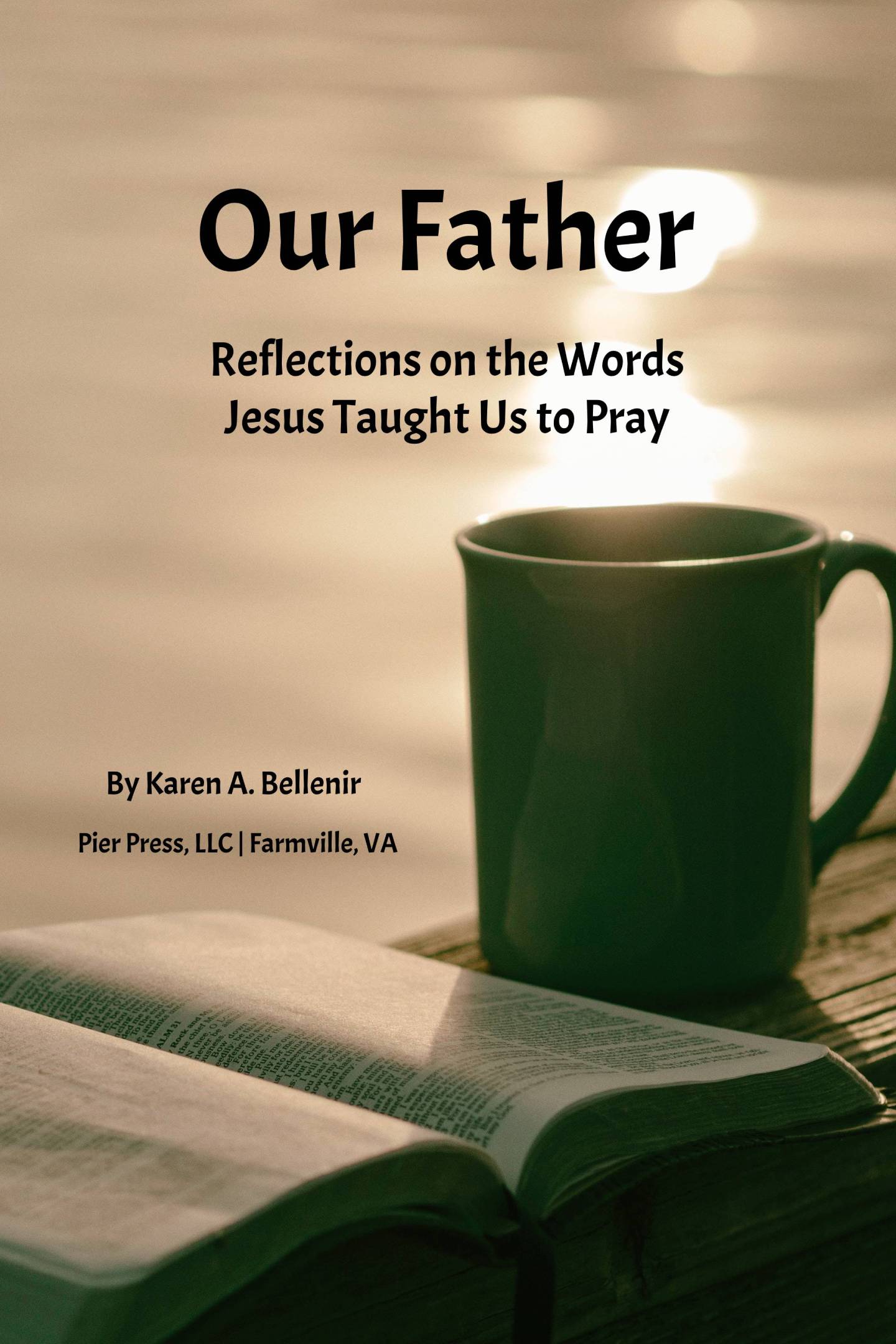Table of Contents
- Preface: The Lord’s Prayer
- Our
- Father
- Who Art in Heaven
- Hallowed
- Be Thy Name
- Thy Kingdom Come
- Thy Will Be Done
- On Earth as It Is in Heaven
- Give Us This Day
- Our Daily Bread
- And Forgive Us Our Trespasses
- As We Forgive Those Who Trespass Against Us
- And Lead Us Not into Temptation
- But Deliver Us from Evil
- For Thine Is the Kingdom and the Power and the Glory
- For Ever (and Ever)
- Amen
- Titles and Characteristics that Describe God
- Copyright Information
For Thine Is the Kingdom and the Power and the Glory
Here I stand on the edge of Lake Despondency. I’ve waded into the water away from the shore of God’s kingdom. Up to my knees, I’m about to dive in deeper, to fully submerge for a swim. I pray, “God, give me the courage to wade back to the shore, to walk in the sun, to dry off and try again. And again. Let me seek to serve others out of a genuine concern for their well-being. Let me give without expecting to receive. That expectation of reciprocity is what brought me here today. I didn’t know I had it until it wasn’t fulfilled. But rather than sink into gloom and be enveloped by discouragement, I need to return to your Kingdom, to your service. Through obedience to your rule, I will regain my home in your domain. I will recover joy.”
The last few lines of the Lord’s Prayer about the kingdom, power, and glory aren’t found in ancient biblical manuscripts. They seem to have been appended later.
The kingdom and the kingship belong to God. Along with power and glory.
God’s power is a mysterious, perplexing concept. It often seems as if God doesn’t choose to wield it. God certainly doesn’t use it to make people behave as I think they ought. God doesn’t use it to intervene on behalf of people I love. God doesn’t even exercise his power to control nature.
I wonder: Where was God when my church split into warring factions? Where was God when my cousin died? Where was God when a 2004 tsunami killed nearly a quarter of a million people? Where was God when … you can probably fill in as many blanks as I can.
For a king who is a deity with supposed omnipotence, God appears to govern with a delicate touch. I don’t understand God’s priorities or why God takes a hands-off approach in the unfolding of important, even life-or-death, situations. How can I be expected to acknowledge God’s power when I fail to see it in action?
Yet, I wonder, how often do I fail to see things? Fail to see when someone needs encouragement, when my help is needed, or when I should speak up and say No. My prayer should acknowledge God’s power, even if I don’t see it or understand it.
God’s power pervades all of existence. It holds the universe together, it orders the moment-by-moment forward march of time, and it sustains life. Without God, there would be no biology, no chemistry, no physics. Without God there would be no love. God’s power underpins all that is. It is glorious.
Glory is a religious word. It gets tossed around in hymns and prayers. The expression “Glory to God!” can be used in praise and also in a sigh of anguish. The word’s meaning has been dulled through casual use.
The Old Testament is filled with references to God’s glory as something tangibly made manifest. It appeared in a cloud (Exodus 16:10), lingered on a mountain (Exodus 24:16–17), and filled a tabernacle (Exodus 40:34-35). The word is also used as a verb: glory in His holy name (1Chronicles 16:10, Psalm 105:3); glory in the holy one of Israel; and, in him they shall glory (Jeremiah 4:2). A related verb, glorify (or glorified, in the past tense), shows up in verses like “Let the LORD be glorified” (Isaiah 66:5). And there are other variations: glorious, an adjective; gloriously, an adverb, and glorifying, a gerund. But what exactly does it all mean?
The noun forms seem related to the meaning conveyed by the English words honor and splendor. The verb and other forms seem related to praising, cheering, or boasting. These are the things the traditional formula appended at the end of the Lord’s prayer acknowledges as belonging to God.
In other words, these things are God’s: the kingdom, the right to rule with authority; the power, the right to act or to refrain from acting; and the glory, the right to exhibit splendor, evoke awe, and receive honor and praise.
